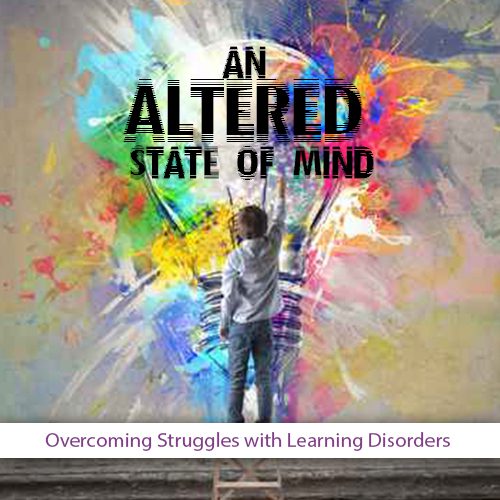By Donesa Walker, M.Ed, owner of LearningRx of Shreveport-Bossier
“Issues with School failure, low self-esteem, early drug use and higher rates of juvenile delinquency” quotes The Advocate of Dr. Steven Felix, a Louisiana pediatrician are all side effects of learning disorders especially that of ADHD, and yet Louisiana has over 18% of our kids diagnosed with ADD/ADHD and the highest percentage in the nation of kids on meds for this disorder according to a recent study. Over 10% of our state’s kids are on ADD meds and this is simply unacceptable with the long term side effects and results. Additionally, Dyslexia and other related disorders now affect as much as 15-20% of our kids in Louisiana. That’s 1 in 5 kids or 4-5 kids per classroom. 2 out of 5 kids are not reading at grade level by 4th grade according to the Nation’s report card and this rate is even higher in LA. The effects of ADD/ADHD, dyslexia, dysgraphia, dyscalculia, etc. on our economy are overwhelming. Dr. Sandra Chapman of The Center for Brain Health at the University of Texas in Dallas calls it BRAINOMICS and cites that the cost of cognitive deficits leading to learning disorders is an economic crisis we must address. Enough with the bad news! Let’s get busy correcting this trend.
How to make change? First, understand that ADHD is a brain disorder which has symptoms including difficulty completing tasks, impulsiveness, being restless and compulsive, all of which many struggle with at various points in their lives. Dyslexia along with its partners, dyscalculia and dysgraphia are also brain disorders with a wide range of symptoms that are growing in our population. Additionally, environmental factors including television, smart phones and computer usage as well as more severe factors such as poverty induced nutritional deficits, neglect/abuse, and exposure to alcohol/drugs in the womb and in early life all lead to a higher rate of occurrence. Louisiana ranks at the very bottom in several areas on the Nation’s Report Card as of current research released in August 2016. It is hard to educate a population struggling with so many factors contributing to learning delays, but it can be done.
Second, we must take community ownership by stepping up to partner with community efforts such as STEP FORWARD that are striving to make inroads in these areas of concern and give of our time to be a community partner.
Third, we must take steps in our own lives to diligently address the environmental factors we have within our control such as dietary options-eating more leafy greens and nuts to increase our magnesium intake. Did you know that a magnesium deficit has the same symptoms of ADD? Are you getting an adequate amount into your diet or taking a supplement to enhance your brain performance? 80% of Americans are not getting enough into their diet through regular means. In society today, there are alternate ways to get this into your system such as lotions, oils, and over the counter minerals but nothing beats eating it naturally. Another environmental factor we must address is overuse of technology in our lives. Have you honestly charted how much time you & your children spend on smartphones, televisions, computers, etc? Is the WIFI constantly running in your home? The American Academy of Pediatrics has recommended that a child use only 10 minutes of data streaming (technology) times the age of the child and none at least one hour prior to bed. So for the under 1 year age, that’s no TV! For the elementary aged child, that means only 1 hour or less of technology including video games daily and definitely not any 1 hour before bed. In this techno-age, many children spend hours each day gleaning information from technology and even in some cases have textbooks gone to tablets. So how do you combat this techno-age and keep our brains healthy? Train the brain. You are training your brain every moment of every day in some way but a deliberate approach is recommended to reverse the effects of too much/too little of all.
What are some ways to train the brain effectively and efficiently? One way is simply a family game night. This is a simple solution that addresses ways the brain learns. Another way is to partner with a brain trainer via a local training facility such as LearningRx so you can be guided in the correct games/activities for your child’s brain. Getting a cognitive assessment so you know how your child’s brain learns is the key. Third, you can read every night to your child no matter what their age as this builds vocabulary and social interaction skills. Fourth, you can use the 1 hour of techno time for valuable brain training games aimed at your child’s ability by choosing wisely at Learningworksforkids.com or stop by LearningRx to pick up a FREE game pack and/or list of 100 APPS that are good for the brain (these are also available for download online on the website www.learningrx.com/shreveport).
Finally, combating a learning disorder whether you are an adult or a child starts with positive steps to address it and being deliberate about taking charge of your own abilities. Don’t let weaknesses overwhelm you. Address them. Don’t let excuses rule your life. Instead make a deliberate plan to boost your brain and that of your children, parents, etc. The growth long term is worth the time and effort now.
For more information: contact Donesa Walker at LearningRx Shreveport-Bossier. 318.797.8523 or email us to receive the free game packs at Shreveport.la@learningrx.net.
QUICK TIPS TO ADDRESS ADHD & DYSLEXIA
- Identify the Cognitive weaknesses by getting an assessment-available via local psychologists and through LearningRx. LearningRx does NOT diagnose learning disorders but only looks at the weak cognitive skills to individualize a brain training intervention.
- Limit technology reasonably-10 min x age of child or not more than 3 hours daily for adults.
- Boost nutritional benefits of magnesium & other minerals via a healthy diet-ask your doctor or see a lifestyle physician.
- Drink plenty of water to combat short term memory loss-example: 100lbs=50oz water daily.
- Read with your child/family members daily/nightly & play rhyming games, word games, and vocabulary building games often.
- Family game night playing board games that boost brain skills-list available from LearningRx.
- Engage in purposeful brain training-either with a personal trainer (LearningRx) or via a deliberate approach.
- For ADD/ADHD, try alternate treatment methods such as behavioral therapy versus medication or with medication as recommended by your doctor.
- For dyslexia, get engaged with intervention programs such as LearningRx , Masonic Lodge programs, A Kids Choice Foundation or working with a speech/language specialist as well as those offered by your local school.
- Keep a positive mindset and Switch on Your Brain per Dr. Caroline Leaf by engaging in positive thought and restatements during the harder times.
- Donnas Walker, M.Ed


